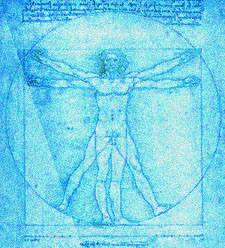This is a challenge for anyone willing to participate. If you suffer from minor problems like headaches, muscle soreness, acid reflux, heartburn, problems sleeping, tiredness, lack of concentration or other disorders, taking these small steps may help these problems drastically.
New Year Resolve to Feel Better
31-Day ChallengeGuidelines:
1. Reduce or completely eliminate grains and sugars. If you eat any grains, they should be in whole form and should not be processed. Try to avoid sugars completely, choose sweet fruits for snacks or dessert. Especially eliminate sugars if you experience yeast infections more than once a year. Sugars feed yeast and cause an overgrowth in your body that can tip the delicate scale of good yeast and spread to cause infection.
2. Drink at least 64 ounces of water a day. Drink more if you exercise or drink caffeinated beverages (see next rule).
3. Cut out the caffeine! Try to avoid drinking any caffeine during the month. If you consume caffeine on a daily basis, this will be difficult for the first couple days, but physically, the caffeine only stays in your system for 48 hours, so after that it is purely psychological.
4. Cut down carbs. Try to avoid food like potatoes, breads, pastries, bagels, rolls, etc. Don’t go Adkins with it though, this does not mean to eat meat as a replacement. You should replace it with vegetables grown above ground such as lettuce, spinach, kale, etc.
5. Exercise. Try to get at least 15 minutes of brisk exercise each day. Try to get to a pace at which it would be difficult, but not impossible to keep up a conversation.
6. Relax. Try to take at least 15 minutes a day to pray or relax. This will help release positive endorphins and release stress.
7. Sleep. You have heard it before, but getting at least 8 hours of sleep a night can dramatically help your mental awareness and give your body time to heal. Also, the gallbladder empties between 10pm and 2 am, but if you are not asleep, it can back up into the liver and release toxins into the body. Have you ever ached after staying up all night and wondered why? This could be the culprit.
8. Don’t eat out. When you eat out, the food is mass produced, usually devoid of nutrients and high glycemic, meaning that your body will digest it too rapidly and the sugars and fats can cause an increase in insulin and possible weight gain. For snacks, try unsalted, raw nuts or a piece of fruit and try a balance of meats and vegetables for dinner.

 This article from Dr. Mercola's site: Mercola.com, tells more about the just how bad processed sugars and grains can be for our health.
This article from Dr. Mercola's site: Mercola.com, tells more about the just how bad processed sugars and grains can be for our health. 


